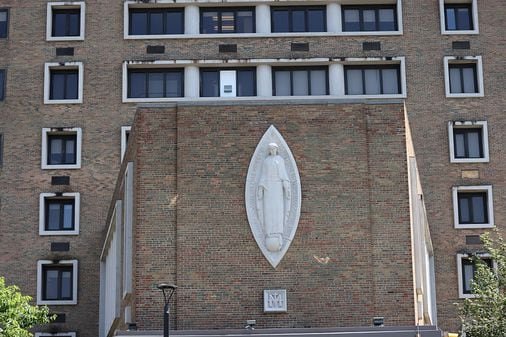If we don’t nationalize health care, we should at least regulate it more.
Sunday’s front-page stories included drug store bankruptcies, hospital closures by Steward Health Care, and the “assembly line” approach to health care by insurance company UnitedHealth Group. The Globe and its sister publication STAT made a compelling case against privatizing health care, citing three examples of corporations maximizing profits and executive pay while leaving the sick, especially the poor, behind.
Things have to change. If we are adamant about not nationalizing healthcare, we should at least start regulating the healthcare industry as a public utility. Affordable and readily accessible healthcare should be a basic human right in the developed world in the 21st century. Clearly, the private sector does not see it as its responsibility, and any government regulations that currently exist are not serving the purpose.
The United States still sees itself as a government of the people, by the people, and for the people. Our Constitution was enacted to, among other reasons, “promote the general welfare.” Let us all have enough compassion for our fellow human beings and demand that Congress step up and make affordable health care at least as accessible as we are to electricity and the internet.
James W. Slack
Lexington
Hospitals are not big stores that can hang “closed” signs.
News reports about the planned closure of Steward Hospitals in Dorchester and Ayer raised concerns that patients would have to travel farther to receive medical care (“Steward to close Kearney and Nashoba Valley hospitals,” p. A1, July 27).
Remember, we are talking about hospitals here, not factories or big box stores. The staff are not just employees. We are talking about doctors, who have gone through a rigorous selection process and have been allowed to endure long, hard, years of rigorous study in order to do the job they have dedicated themselves to: caring for you and me.
At the heart of the facility are nurses – the knowledgeable, trained and highly skilled medical professionals who act as symbols of care and compassion – and the vital support staff who help keep the facility running, from administration to maintenance.
The provision of health care is literally as essential to the survival of our people as food, clothing, and shelter. It is therefore alarming to see health care succumbing to corporate domination and the attendant trends of cutbacks, market share obsession, and profit motives that prioritize profit and loss over life and death.
To make matters worse, medical professionals are being told what to do by businessmen who can’t even tell the difference between their elbows and their butts.
Joseph R. Noone
Rin
(Re)voking the call for single-payer system
The planned closure of Kearney Hospital and Nashoba Valley Medical Center is a symptom of our broken health care system, built on greed and profiteering. Americans must speak up and demand that our political leaders implement a national, single-payer health insurance system. Until that happens, our most vulnerable and marginalized patients will continue to suffer from poor health outcomes.
Dr. Philip A. Lederer
Jamaica Plain
The author is a member of the National Health Program Physicians Association.


